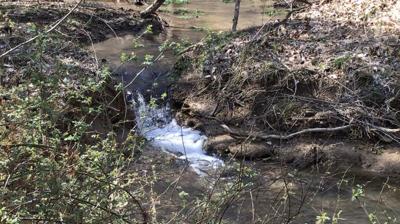Source: WDRB
September 11, 2019
Marcus Green

The forest organization claims it is “now experiencing substantial impacts” and has a stake in the dispute, which centers on how LG&E was approved for a 12-mile natural gas transmission line that would cross protected lands Bernheim owns.
The filing is the latest step in Bernheim’s Aug. 2 appeal to the Public Service Commission, the entity that let LG&E proceed with the pipeline proposal in 2017. It wants the commission to force the utility to essentially start over and apply for a “certificate of public convenience and necessity” that wasn’t sought before.
Attorney Randal A. Strobo said Bernheim should be allowed to pursue its complaint because Kentucky regulations don’t define when the “harms are suffered.” Moreover, he claimed, Bernheim couldn’t have objected during LG&E’s two-year rate case because it didn’t know of the pipeline proposal.
The commission, in an Aug. 20 order, asked Bernheim to justify why the complaint should be heard.
“The lack of meaningful and timely public notice for a new 12-mile pipeline prevented those interested and potentially adversely affected, including Bernheim, from being able to challenge the necessity, and the absence of wasteful duplication…” Strobo wrote.
LG&E first mentioned the pipeline in a broader application to raise rates in 2016. It did not ask for a public necessity certificate, which other pipeline projects in Kentucky have requested; instead, the commission later ruled LG&E needed the certificate and qualified for it.
Kentucky law and regulations require detailed public notice for some types of large infrastructure projects, such as cell phone towers and electrical transmission lines. Developers must let adjoining property owners know about those plans and publish information in local newspapers.
Pipelines like the one LG&E wants to build aren’t included.
Strobo acknowledged that the notice requirements are different, but said in Bernheim’s filing that “LG&E should not be allowed to obfuscate its request for a (certificate for public convenience and necessity) under thousands of pages of testimony and memoranda. LG&E’s clandestine attempt to unlawfully request a CPCN should have never been condoned by the Commission.”
Strobo argued that had the commission required LG&E to follow the normal application process, Bernheim would have likely been notified as one of the pipeline project’s “interested parties” under Kentucky law and been given the ability to raise concerns earlier.

